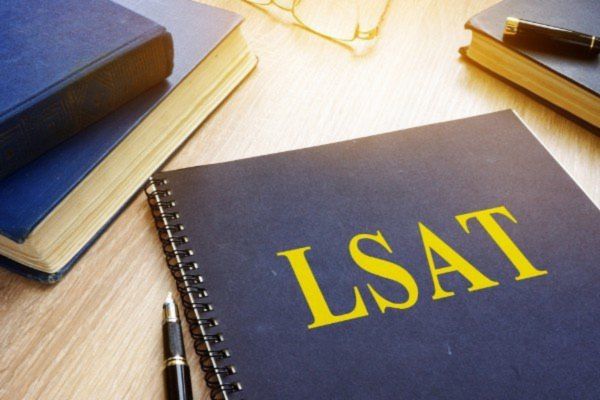Online Law School California

The landscape of legal education has seen tremendous upheaval in recent years, especially with the emergence of online law schools.
Online Law School, California
Obtaining a license to practice law in California through online schooling requires navigating different accreditation statuses and meeting certain bar exam standards. The differences between ABA-accredited and non-accredited law schools, the requirements for the bar exam, and the licensing procedure are the main topics of discussion in this article about online law schools in California.
ABA-Accredited vs. Non-ABA-Accredited Online Law Schools
The main organization in the US that accredits law schools and verifies that they adhere to strict academic requirements is the American Bar Association (ABA). Schools with ABA accreditation are respected across the country, and their graduates can often take the bar test in any state.
Conversely, non-ABA-accredited schools—which frequently comprise correspondence and online law schools—are typically recognized by the California State Bar but not by the American Bar Association. Graduates from these institutions may encounter restrictions if they want to practice in other states and can normally only sit for the California Bar Exam.
Qualifications to Take the California Online Law Exam
Candidates must fulfil certain requirements established by the State Bar of California to be qualified to take the California Bar Exam:
1. Educational Requirements: Candidates must have completed an ABA-accredited Juris Doctor (JD) program or be registered in an unaccredited school in California that meets comparable requirements.
The varied range of educational paths available to individuals is reflected in the prerequisites for entering law school and ultimately being eligible to sit for the Bar Examination in California. Here’s a thorough rundown:
Conventional Law School (California or ABA-accredited)
1. Bachelor’s Degree: Before starting law school, candidates usually need to have earned a bachelor’s degree from an authorized college or university This is a prerequisite for ABA-accredited schools and most California-accredited law schools. Some schools will accept an associate’s degree or 60 completed undergraduate units.
2. LSAT: Many California- and ABA-approved law schools, as well as most other recognized schools, typically require entrance to the Law School Entrance Test (LSAT). It evaluates logical reasoning, analytical reasoning, and reading comprehension.
Alternative Legal Education Paths in California
California is the only state that offers a variety of legal education options outside of the conventional curriculum.
1. Unaccredited Fixed-Facility Law Schools: Although they are registered with the State Bar, these institutions are not recognized by the ABA or the California State Bar. Usually, students have to finish what would be the equivalent of a bachelor’s degree or show that they have had enough general education.
2. Correspondence and Distance-Learning Law Schools: These institutions generally use online or correspondence courses to provide legal education. They need to have a California State Bar registration. Students must fulfil certain educational requirements, much like those for institutions with fixed facilities.
3. Law Office or Judges’ Chambers Study Program: Under this course, students can spend four years studying under the guidance of a judge or active legal practitioner. To be considered for this route, an applicant must have completed two years of college coursework or have an equal level of education as established by examination.
Pre-Legal Education
Typically, applicants need to have completed two years of college coursework or passed an equivalent test that verifies their college-level proficiency.
Legal Education
This varies depending on the kind of law school, but it usually entails finishing a Juris Doctor (JD) program at a California or ABA-accredited legal education institution. There are additional rigorous educational and testing requirements for non-accredited programs, which include passing the First-Year Law Students’ Examination, or “Baby Bar.”
Personal Statement and Recommendations
As part of the application process, the majority of law schools demand a personal statement in addition to letters of recommendation.
-Character and Fitness Assessment: In California, a moral character assessment is a requirement for all law students.
These many career paths are a reflection of California’s adaptable legal education system, which upholds strict standards to guarantee future attorneys’ competency while supporting a range of lifestyles and professional objectives.
1. Registration: Future attorneys must register with the State Bar as soon as practicable, either as law students or as attorney applicants.
2. First-Year Law Students’ Exam (FYLSX): Also known as the “Baby Bar,” this test is necessary, unless exempted, for students from unaccredited schools following their first year of study.
3. The Multistate Professional Responsibility Examination (MPRE), which focuses on professional conduct, is a requirement for all candidates.
Conclusion
Those hoping to obtain a legal degree have a dynamic and adaptable option in Californian online law schools. These universities offer a chance for students to achieve their legal goals while juggling their personal and professional obligations, thanks to their extensive legal education programs, accredited status, and cutting-edge online platforms. Working professionals, parents, and people living in rural places are just a few of the different student populations that online law schools in California serve with their flexible schedules, interactive learning environments, and access to knowledgeable staff. Because online learning is so convenient and easily accessible, people from different backgrounds can study law without being limited by geography.
Online law schools offer an alternative to traditional legal education, but it’s important to remember that they adhere to the same strict requirements. California’s accredited online law schools follow the rules established by the State Bar of California and other accrediting organizations to guarantee that their graduates have the necessary education to practice law in the state.





